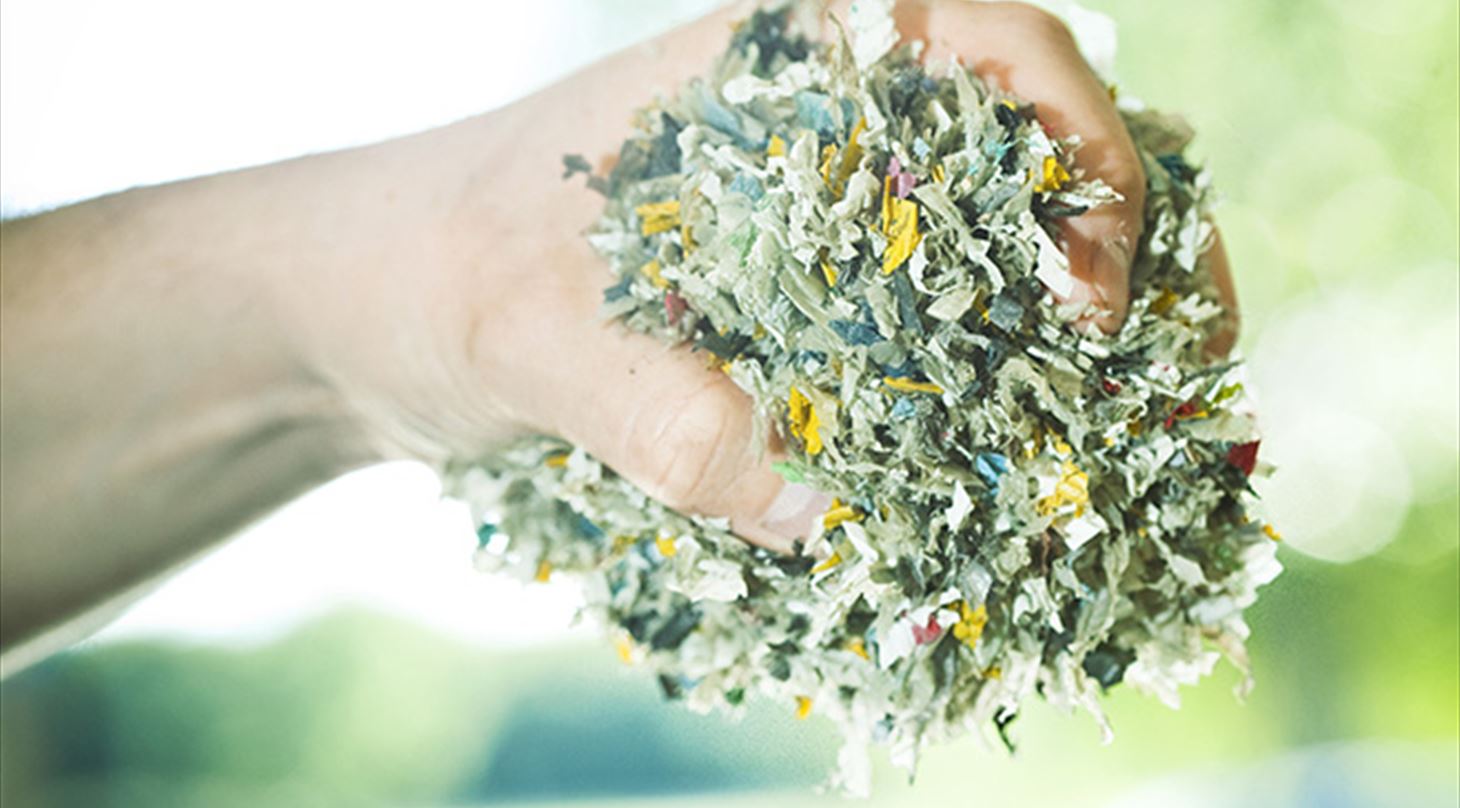
Recycled Plastics - Characterization of raw materials and products
Select Page
Plastic collected from industry, households, and for example the ocean, is a resource increasingly in demand by Danish industry as an alternative to virgin plastics.
Recycled plastic, reused plastic, or recirculated plastic typically has very variable traceability. It is therefore important to know both the origin of the plastic (through documentation) and its properties, composition, and purity (through analysis). It may be necessary to characterize a batch before it is used to ensure consistent production. Typically, the Technological Institute assists Danish industry with testing based on the following standards:
- EN 15343 Plastics – Recovered plastics – Traceability of plastic recycling and assessment of conformity and recycled content
- EN 15347:2007 Plastics – Recovered plastics – Characterization of plastic waste
- EN 15342 Plastics – Recovered plastics – Characterization of polystyrene (PS) recyclate
- EN 15345 Plastics – Recovered plastics – Characterization of polypropylene (PP) recyclate
- EN 15346:2014 Plastics – Recovered plastics – Characterization of polyvinyl chloride (PVC) recyclate
- EN 15348 Plastics – Recovered plastics – Characterization of polyethylene(terephthalate) (PET) recyclate
- CEN/TS 16861 Plastics – Recovered plastics – Determination of selected marker compounds in recycled polyethylene terephthalate (PET) for food contact
- DIN SPEC 91446 Classification of recycled plastics by Data Quality Levels for use and (digital) trading
- ASTM D5577 Standard Guide for Techniques to Separate and Identify Contaminants in Recycled Plastics
In addition to standardized testing, we also offer more customized investigations, for example:
Neutron-activated identification
This is an elemental analysis. This method can screen relatively large sample volumes (1 L) for impurities, e.g., chlorine from PVC, making it especially suitable for recycled plastics, where impurities typically consist of flakes of foreign plastics in a large amount of the desired plastic raw material.
Size exclusion chromatographic analyses
This analysis can also be performed at high temperature so that semi-crystalline plastic types, such as polyamide, polyoxymethylene, and polypropylene, can be characterized.
Capillary rheometry
This method provides predictions of how “injection-molding-friendly” a batch is, which is important in terms of the energy consumption associated with shaping the plastic.
If you are considering recycled plastic as a raw material, need an overall risk assessment, or require a specific analysis, contact Team Manager, Frederik R. Steenstrup, at +45 7220 2357 or fhgs@teknologisk.dk